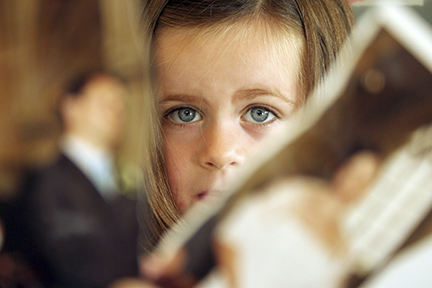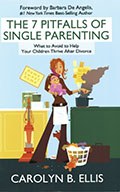
By Carolyn Ellis
Children and divorce is a very challenging combination. Divorce inevitably has a big impact on your children’s lives. Initially, there are so many external changes that happen – getting used to one parent no longer living with them all the time, keeping track of their toys and clothes between mom’s house and dad’s house and wondering where their friends and school will be.
Longer term, children are trying to cope with the questions they have about what their parent’s divorce means to them. There are three common mistaken beliefs or conclusions children make about divorce that can make it harder for them to adjust to their life post-divorce and that parents will want to address.
Mistaken Belief #1 – “It’s My Fault”
Children use a filter of “what this means about me” in interpreting events in their world. Children tend to be very self-referential, which is how they try to make sense of the world as they grow and mature. Things happen in their life and part of the way they learn to understand and accept it is by making it mean something.
Children conclude that if something happens, like a divorce, it must be because they “did something wrong.” Children often believe they are the reason mommy and daddy are splitting up. It’s very important, therefore, when you explain your separation to your children that you make it clear that they are not to blame. Divorce is the result of issues between two grown-ups and your children are not the cause of the separation.
Mistaken Belief #2 – The Reunion Fantasy
Children often fantasize that mom and dad can and should get back together again. Even though we live in a day and age where divorce is more common than ever, children yearn for their parents to reunite. The desire for parents to be together can often be held even when children become adults themselves. Children of divorce mistakenly believe that if they are “really good” children or negotiate and bargain with their parents, they might be able to get their parents to reconcile.
Part of this fantasy and the desire that everyone “live happily ever after” comes from children wanting to be loved. It’s hard to for children to understand they are truly loved by both parents if parents live separately under two different roofs. It’s important to reassure your child that they are loved no matter what by both mom and dad, even if mom and dad no longer love each other.
Mistaken Belief #3 – A Chip Off the Old Block
Children see themselves as the product of a mom and a dad. When their parents split up, their self-esteem is thrown into question. “If Daddy doesn’t love Mommy anymore, and half of me comes from Mommy, does that mean there is something Daddy won’t love about me too?”
A child’s awareness of being a product of two parents leads is one reason why it is never advisable to bad-mouth, malign, or openly criticize the other parent to the child. It not only makes it feel unsafe to express love or loyalty to the other parent, but it can set up self-doubt and insecurity in your child about whether they are worthy of your love as well.








